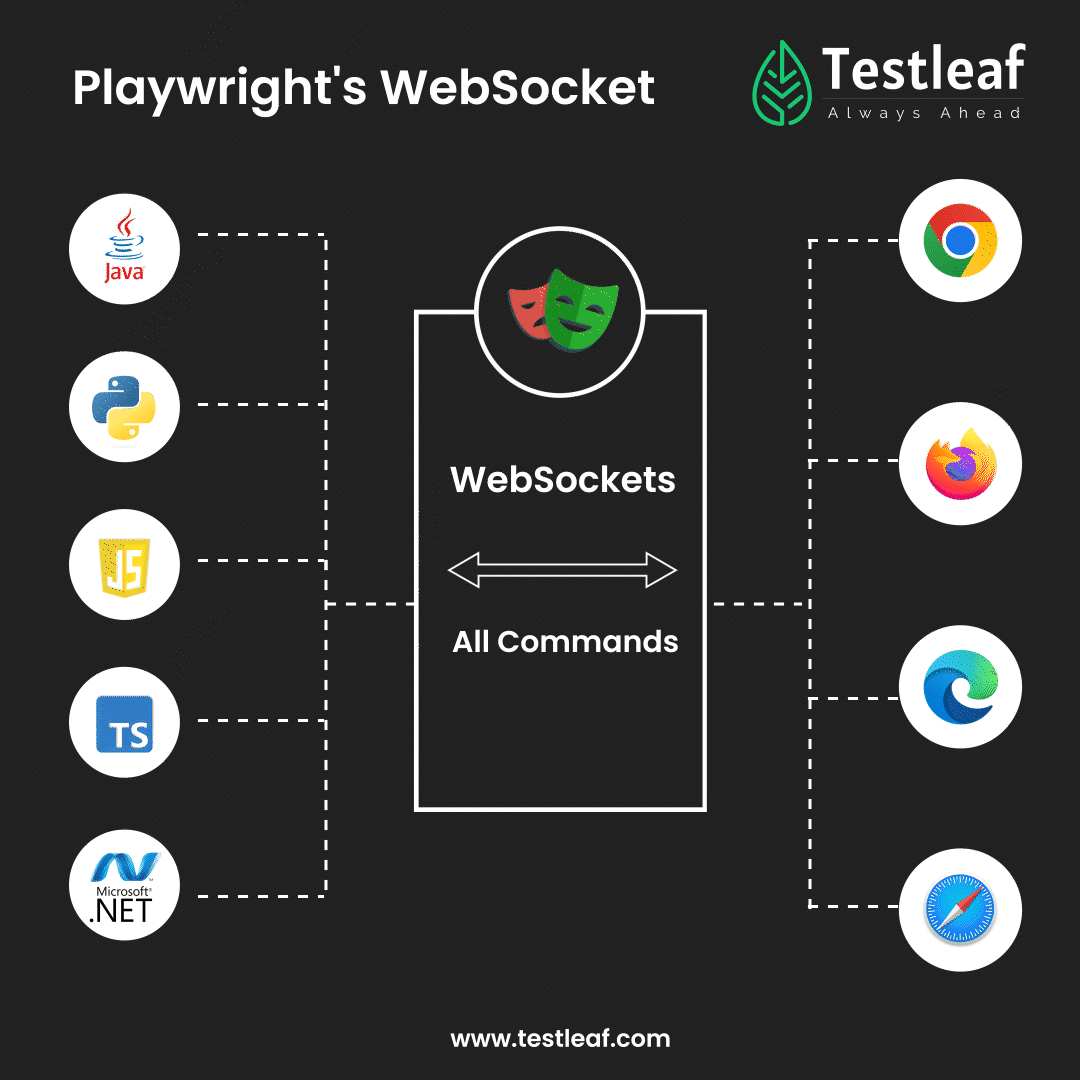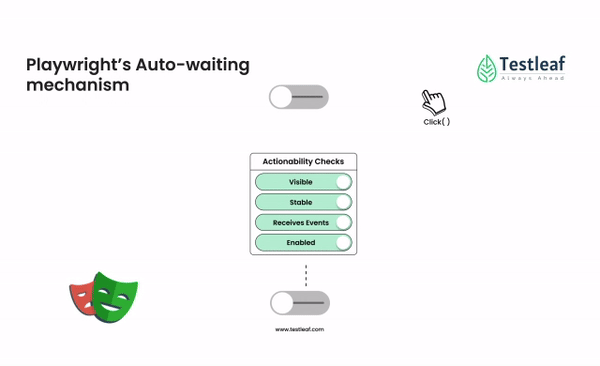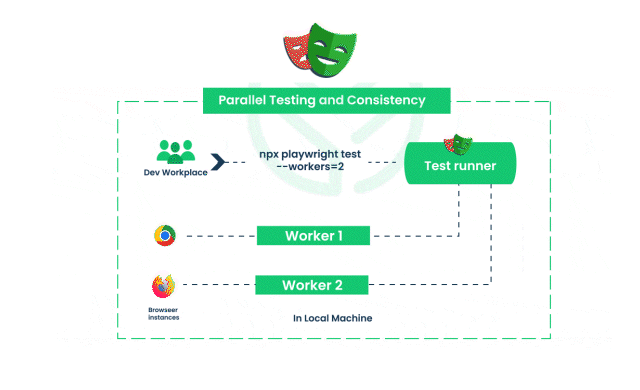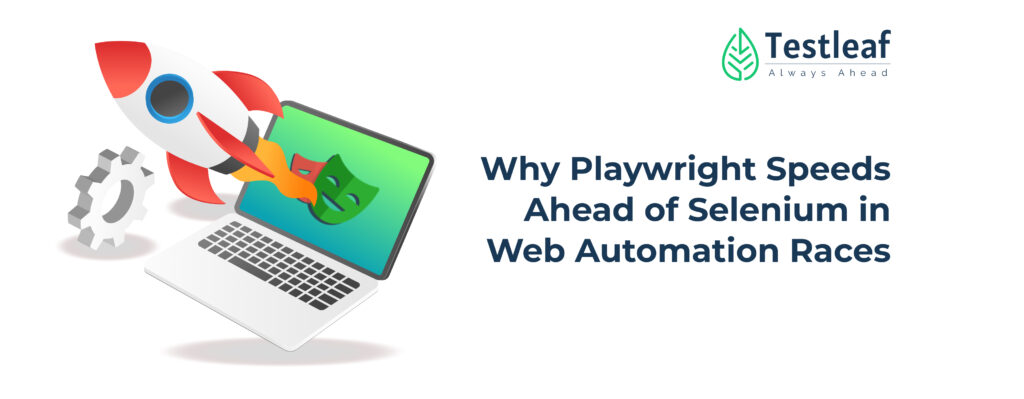Introduction:
In the realm of web automation, Selenium has been the go-to for a long time because it’s known for being reliable. But now, there’s a new contender called Playwright. It’s like a strong competitor with a modern design and advanced features that claim to be faster and more efficient.
The important question is, what makes Playwright stand out and catch everyone’s attention in the field of automating things on the web?
Do you know what playwright is and who invented this and why?
Playwright Description:
Playwright is a tool used in web automation, which means it helps in making websites work automatically. It’s a strong competitor to other tools like Selenium. Playwright is known for its modern design and advanced features that make automating tasks on the internet faster and more efficient.
Creator and Purpose:
Playwright was created by Microsoft. The tool was developed to offer a strong alternative to existing automation tools like Selenium, introducing improved speed, efficiency, and modern functionalities for web automation.
Why Playwright Outpaces Selenium in the Web Automation Marathon (Playwright vs Selenium):
Playwright’s Edge with WebSocket:
Selenium’s reliance on HTTP requests, which are slower in data transmission, falls short in today’s fast-paced web environments needing instantaneous updates.

Playwright steps up with Web Socket, facilitating real-time, two-way conversations between the browser and server, essential for dynamic web apps.
This approach not only speeds up interactions but also streamlines the process by avoiding the usual setup and teardown associated with HTTP requests.
“No-Driver” Advantage
Selenium’s journey with drivers resembles using translators, effective yet not the fastest. Playwright eliminates this need, communicating directly with browsers, akin to ordering coffee in a local language – faster and more efficient.
This direct communication model is a key factor in Playwright’s accelerated performance.
Smart Waiting Mechanisms
The wait time for loading elements or completing actions can significantly slow down testing.
Playwright addresses this with its smart waiting mechanism, intelligently waiting for elements to be ready, thus reducing test failures and the need for manual delays.
This feature not only minimizes flakiness due to timing issues but also enhances test consistency and reliability. Additionally, Playwright offers customizable wait conditions, allowing precise tuning of wait times to suit specific test scenarios.
Here’s how it works:
You tell Playwright to do something (click a button, wait for text, etc.).
Playwright waits politely, checking if the element is ready:
1. Is it there on the page?
2.Can you see it clearly?
3. Is it finished moving or loading?
4.Can you actually click it or interact with it?
If everything is good, Playwright does what you asked.
If something isn’t ready, Playwright waits a bit and checks again,
After a while, if it’s still not ready, Playwright tells you there’s a problem.
The cool part is you can tell Playwright how long to wait:
1.Set a specific time (like 10 seconds).
2.Tell it to wait until something specific happens (like text appearing on the screen).
3.Even use special “checks” to make sure things are perfect.
This means your tests are less flaky (they don’t fail randomly) and more reliable, like a robot assistant who always gets your coffee right!

Hope this simple explanation helps!
Parallel Test Execution
Playwright revolutionizes testing efficiency by combining parallel test execution with its unique use of browser contexts.
This enables simultaneous testing scenarios within a single browser instance, dramatically reducing total test time. Each browser context operates as an isolated environment, allowing for independent and concurrent testing.
This method greatly accelerates the testing process and simplifies test management, resembling an orchestra where every instrument contributes to a harmonious and efficient performance.

Conclusion
Playwright’s ascent in web automation is marked by its innovative Web Socket integration, driverless architecture, intelligent waiting mechanisms, and parallel test execution.
These features collectively contribute to its faster and more streamlined testing process, positioning it as a top choice for modern web applications.
As web development continues to evolve, tools like Playwright are pivotal in adapting to the changing landscape, offering speed and efficiency where it’s most crucial.
As we wrap up this exploration into the dynamic world of web automation, it’s clear that the landscape is undergoing a transformative shift.
The comparison between Selenium and Playwright has unveiled the evolution of tools in the pursuit of faster, more efficient, and reliable web automation.
As we conclude our journey through the dynamic world of web automation and the exciting possibilities presented by tools like Selenium and Playwright, I’m thrilled to address some frequently asked questions (FAQs) that might be on your mind:
Q1: Why should I consider learning Playwright over traditional tools ?
A1: Playwright offers a modern design, advanced features, and improved speed, making it a strong contender in the rapidly evolving landscape of web automation. Learning Playwright ensures you stay ahead and adapt to the latest industry standards.
Q2: How can the TestLeaf Playwright course benefit me, considering I’m new to web automation?
A2: Our Playwright course at TestLeaf is designed for all skill levels. Whether you’re a beginner or an experienced professional, the course provides hands-on experience, practical insights, and valuable techniques to master Playwright and boost your web automation skills.
Q3: Is web automation with Playwright suitable for my specific industry or project?
A3: Absolutely! Playwright’s versatility makes it applicable across various industries and project types. Whether you’re in e-commerce, finance, healthcare, or any other sector, the TestLeaf Playwright course equips you with the knowledge to apply these skills to your specific context.
Thank you for joining us on this exploration, and we look forward to pioneering the next steps in web automation together.
Shape your future in web automation with TestLeaf’s Playwright course. Let’s code the future together!
learn more about top automation framework interview questions.






